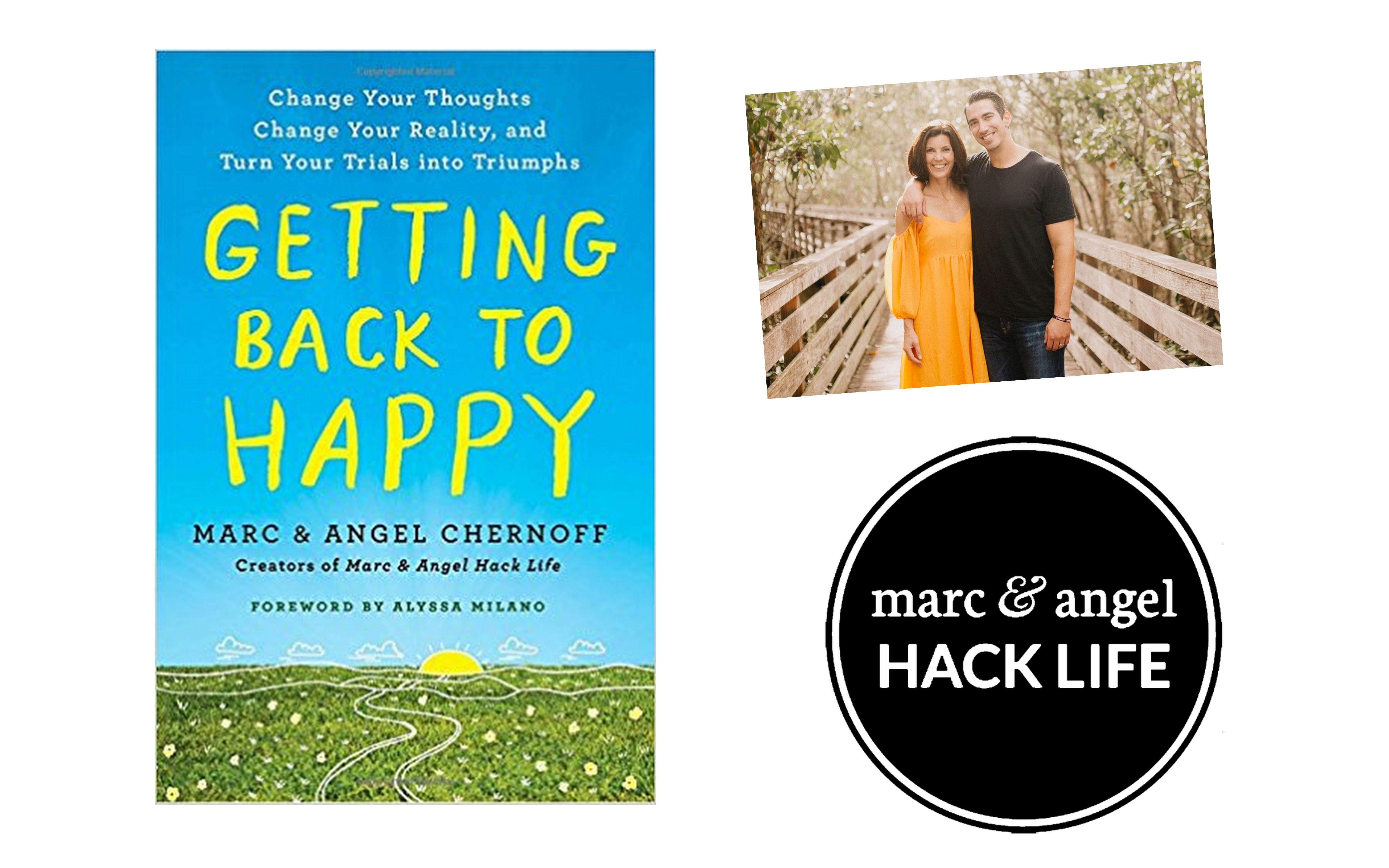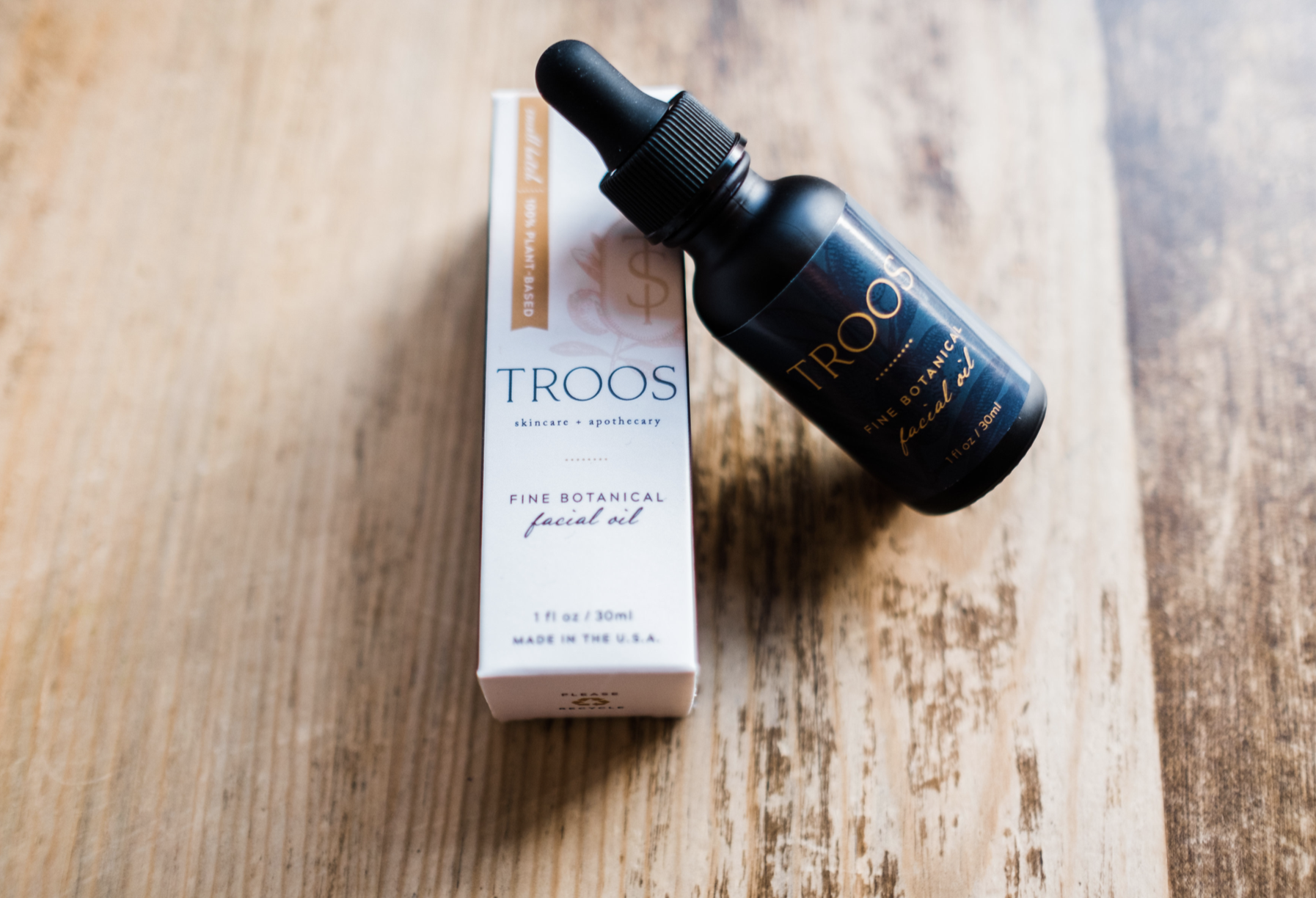Mon, 28 May 2018
~The Simple Sophisticate, episode #210~Subscribe to The Simple Sophisticate: iTunes | Stitcher | iHeartRadio | YouTube“It is always the simple that produces the marvelous.” – Amelia BarrYou react in anger when a moment of frustration arises only to have to take more time (once you realize you shouldn't have reacted in such a way) to apologize and rebuild a relationship. The best decision, the simple decision, would have been to say nothing at all in the moment, step away from the situation, and decide what, if any, response was necessary. In a hurry to clear your inbox, you scan through emails too quickly, miss important details and end up having to respond twice or three times to correct the initial response. In an attempt to create a relationship, you cling or hang on to someone who doesn't fully welcome you into their lives. The simple truth regarding relationships is if people want you in their lives, they will make room for you and not create guessing games, just as you have opened your life to them. There are many ways we can complicate our lives when it is absolutely unnecessary to do so. While we often hear that we must struggle in order to reach the goals we desire, while there is much truth to the duration, there are many details along the way that do not have to be complicated. In fact, to complicate them, discourages our journey toward success. I was reminded that even those who value simplicity in order to elevate our lives (me!) can make the mistake of creating complication where they need not be. Over the past month I have been putting off a task that I knew in my good conscience needed to be tended to do. The delaying only built up more stress and fear that would have been assuaged or negated had I simply took action, discovered what the solution was and put my energy toward reaching the solution rather than putting my energy toward stressing out about the unknown. Often we complicate because we don't want one more thing to fill our plate. Ironically, we are putting more than one more thing on our plate; we are at least putting two: the task that needs to be tended to and the worry that we expend wondering. In other words, we accrue interest, and in this case, not the good kind. Today I'd like to take a look at 1o simple ways we unnecessarily complicate lives with the goal of avoiding these mistakes. Because once we recognize our mistake, we can simply correct our course. 1. Small, regular steps, to reach great successWhen we see our goal at the end of the long journey, there is a natural assumption that a grand step must be made. And while, yes, the distance is long, the journey is simple. So long as you are clear about what needs to be done and break it down into mini tasks, then all you have to do is the daily tasks each day on a regular basis. Whether it comes to improving your health, saving for your dream trip or earning the degree, be clear about your plan and then let go of the longview and trust that your daily habits will carry you to where you wish to arrive. 2. Contentment is in our control"It's only when you add the infinite battles of yesterday and tomorrow that life gets overly complicatd."—Getting Back to Happy, Marc & Angel Chernoff Much of the world would have us believe that contentment lies outside of us. Described as happiness, in a semantic sense, I would agree - happiness does lie outside of us, but contentment is entirely within our control. And it is through understanding how to cultivate contentment that we are more available to appreciate moments of happiness. But because we focus on what is outside of us - what must happen that involves others, what they should do, who should be in our lives, etc. we give our power away. Simply, our power for contentment, everything we need, is in our control because it is a matter of the mind. Ahd when our mindset is in order, we become at peace with ourselves and more engaging and charismatic with the world, drawing to us what we most love and appreciate. 3. Sleep Well, Live WellWhen I think about going to bed each night, I smile. I smile because my bed is soft, comfortable, and a true luxury to slip into after each day. Sleep is good. In fact, sleep is vital to living well. From how well our brain functions, to improving our health as the toxins are flushed from our bodies, to improving our mood, sleep even supercedes exercise. So protect your 7-8 hours of sleep each night and see the quality of your days improve. 4. When we complain, we aren't problem solvingIt is easy to complain and it is very tempting. And while we do need to vent because often we don't know what we are truly upset about until we release the frustration either verbally or on paper, complaining is a waste of energy as it takes away the precious time and brain power that is needed to either solve the problem or move on to something that better uses our time. 5. Learn to say no - focus your attentionFor nearly ten years, my focus has been my passion that is shared every week here on this blog. I continue to follow my intuition, trust that it knows what I cannot see at that moment and keep striving forward to inspire readers to have the confidence to reach their full potential, to shed the limiting views and societal confinements that would hold us back when what the world needs is what we each can uniquely give if only we could unearth it and share it with the world. In so doing my life has taken on its own construct: my daily and weekend schedules are full but much enjoyed, the sights of the world I have had the opportunity to see fill me with inspiration and I continue to arrive closer at understanding how living well, the art of living well, actually works. Because I know precisely why I am continuing to pursue my goal, saying no is quite simple. Whatever you are passionate about, whatever you discover gives you purpose, a deep, driving purpose, once you hone in on it, saying no is simple and the complications that arise from saying "yes" much more than necessary lifts. 6. Feeling loved, begins with loving yourselfThe love stories depicted in cliched rom-coms or traditional fairy tales would have us accept the love we seek resides outside of ourselves. The truth is actually the reverse. As we flip this notion on its head, it sounds too simple, too on the nose to be true, but the truth is you have had the love you have been seeking all along. We cannot truly find someone to love us well if we do not know how to love ourselves. And in order to love ourselves we must get to know ourselves, and when we show the world the self-respect we have for ourselves and thus the world, we attract to us those who appreciate who we are and thus opportunities for quality and lasting, loving relationship. For many, the complicated part lies in understanding how to love ourselves because doing so has been conveyed as being selfish. Once we see someone around us who exhibits self-love, we come to understand that self-love is a form of self-respect and when we respect ourselves we protect ourselves and strike a balance between what we can give to others and what we need to keep to give to ourselves whether it is our time, our energy, or our patience. 7. Reduce excess decision makingFrom the clothes you wear each day (create a capsule wardrobe), to the flavor/varietal of tea/coffee you drink to start your day, once you know what works for you and if it a foundational decision that needs to be stable so that the other tasks you go about doing throughout your day will be successful, stick with it. During my work week, I drink black tea or green tea. There are many amazing teas to drink, but to ensure the foundation of the start of my day is sturdy I drink tea I know I will enjoy. It's not that I won't try different teas when I travel, enjoy brunch on the weekend, etc.. All it means is that too often we choose coffee to try something new (as a tea drinker) on a work day that needs are focus. And if the coffee does not sit well with us, we just complicated our day unnecesarily. 8. When we worry, we waste our days awayWorry is a depletion of two precious commodities - our energy and our time. As I shared a few years ago, there are many benefits to be had when we banish worry (20 to be exact). And one priceless benefit is a return to a simpler way of living and thus improving of our everyday lives. As I shared as the #1 of the linked post, often it is the "how" to banish worry that is hard. So let me share with you a four-step process you can follow to just that - banish unnecessary worry - (1) write down exactly what you are worried about, (2) write down what you can do about it (3) decide the best course of action (4) start immediately to fulfill the course of action you’ve decided upon. In other words, action is the choice you want to take when you don't know what the outcome will be, rather than worrying. 9. Tell the truth (about what happened and who you truly are)"If you tell the truth you don't have to remember anything." — found in Mark Twain's notebook, 1894 On a surface level, as Twain points out, when we tell the truth, we don't have to remember which story to whom, but on a much deeper level, when we tell the truth about who we are and reveal to the world who we actually are, we do not draw to ourselves those who think we are someone else. In other words, not everyone will be drawn to us in our authentic state, but those who are are individuals with whom we have a far greater chance of connecting in such a way that has the opportunity to last, deepen and lift each party involved to their fullest potential. 10. Respond rather than react As I shared in the introduction in one of the examples of unnecessary complication, when we react, our emotions have us by the throat, but when we respond (while it may take more time), we are being thoughtful and inviting logic to join the conversation so to eliminate having to make apologies later. The key to living simply throughout our everydays is to make sure where we can simplify, we are. Because when we reduce the complications that need not be in our lives, we open up vast, beautiful windows for the opportunities we seek to introduce themselves. ~SIMILAR POSTS FROM THE ARCHIVES YOU MIGHT ENJOY: ~Why Not . . . Uncomplicate Your Life? ~Mastering the Complexity of Simplicity ~13 Benefits of Seeking Out Quality, episode #174 ~The "How" of Tailored Simplicity Petit Plaisir:~Getting Back to Happy: Change Your Thoughts, Change Your Reality and Turn Your Trials into Triumph by Marc & Angel Chernoff
~SPONSORS of Today’s Episode:
|
Mon, 21 May 2018
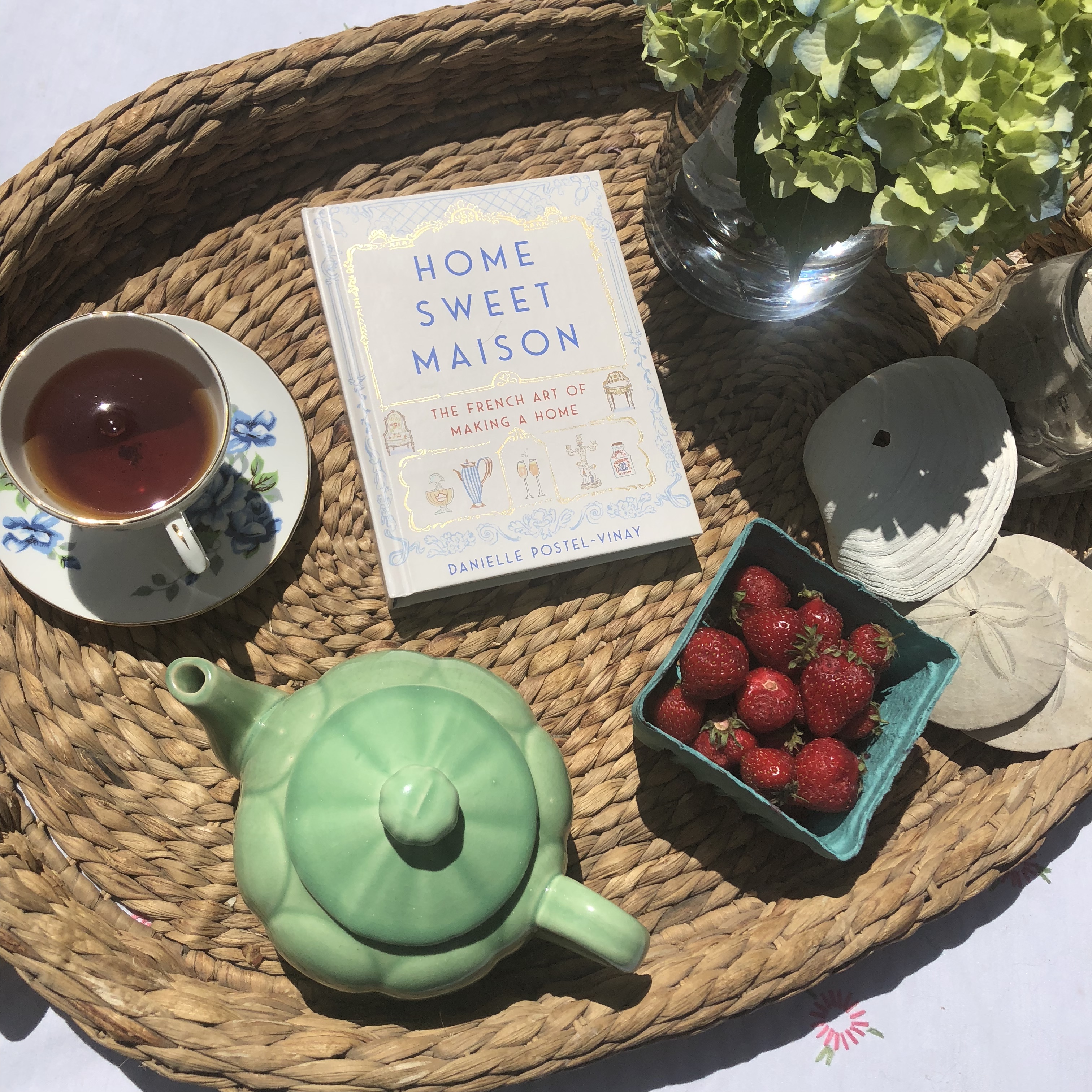 ~The Simple Sophisticate, episode #209~Subscribe to The Simple Sophisticate: iTunes | Stitcher | iHeartRadio | YouTube
"Your home knows your past, it directs you toward your future, and it gives you the comfort of ritual. There is nothing on the planet that knows you and nurtures you like a home. You simply need to give it the tools to take care of you." —Home Sweet Maison: The French Art of Making a Home by Danielle Postel-VinayWhether we've lived in our home for years or only months, tending to our sanctuary is a near priceless gift we can give ourselves when it comes to our inner peace and well-being. Earlier this year author Danielle Postel-Vinay's new book Home Sweet Maison was published offering readers a tour of a home, room by room and how to incorporate what she has incorporated as inspired by the French culture and her French husband. The book is a personal journey, exploration and revelation of how by turning our attention to harness the power of our homes, we, as she shares in the above quote, give ourselves a most wonderful and powerful gift to elevate our everyday and ultimately the overall quality of our lives. Today I have selected 10 ideas that captured my attention, but there are many more within the pages of her book. As she shares in her introduction, "Take what you like and reject what you don't until you create a French-influenced home that is perfect for you."
1. Create a thoughtful entry/foyerMake it unique. Introduce yourself to the world as this is where you greet the world and the world greets you. Choose a shelf or small table top to display your "memory theater" enabling guests to pause, look around and get to know you, if even to create a bit of mystery about the inhabitants. Your personal story and hints at dreams for the future can also be revealed. As well, make it functional - a coat rack or stand - to immediately allow guests (and yourself) to enter the home and begin to relax.
2. Give each room a purpose "Fluid spaces introduced by the open floor plan [by Frank Lloyd Wright] create a sense of endless freedom and light in your home, the appearnce of unity and togetherness. But I wonder if this appearance of togetherness translates to actual togetherness?" When we choose to give each room a purpose, we also communicate to ourselves the ideals we aspire to, a place to practice our values and share them with those we love. Whether it is the dining room being a space to gather tech-free and stay in touch with the lives of those we share the home with or our bedroom (la chambre) in which we share with most intimacy those welcomed into our personal sanctum, similar to our sartorial choices communicating without saying a word, our rooms communicate, encourage and support what we hold dear.
3. Embrace hunger and dine together at designated times during the dayPostel-Vinay sprinkles anecdotes of her French husband's foray into American cuisine and approach to food. Between the larger portions and not waiting to eat until a specified time so everyone can gather and the food can be appreciated, he encourages and reminds how feeling hungry is not the same as feeling starved. Hunger is not bad, he reminds. In fact, it elevates the appreciation for the next meal when it is time to sit down and enjoy.
4. Celebrate the food that has been preparedSimilarly to the point above, her husband is dismayed by the Americans' lack of appreciation for the food that was thoughtfully and with great time created to be enjoyed. An appreciation allows for an understanding of where food comes from and how it was prepared enabling diners to slow down, consciously enjoy the the food and thus not overeat. I also applaud this approach as it nudges us all to eat well and intelligently. In other words, what is it you enjoy about the food? What are you tasting? And you can then carry this into the kitchen to better understand how food is made, prepared, seasoned and its full flavor brought to the table.
5. Encourage all to participate and all topics to be discussedWhile some may adhere to the edict of not talking about politics or religion at the table, I would propose, it is how we talk about these topics at the table that ensures that thoughtful, yet still impassioned conversations on any topic can be had. When we ignore our audience and choose to commandeer the table as our bully pulpit to share our opinions, then we have relinquished respect for fellow diners, but if instead we engage in thoughtful, elevated, conceptual conversation, all people can consider, some may learn, some may accept and some may rise to the challenge to offer another thoughtful opinion demonstrating that so many ideas have many shades of grey. As well, Postel-Vinay shares that the French encourage all guests at the table to speak, even the children. Practicing conversation and listening skills, but also demonstrating how to participate in a conversation which leaves no one out and recognizing when someone is monopolizing the conversation is a life skill for any situation involving effective communication.
6. Cultivate a boudoir (which is not the chambre, or bedroom)"a place of refuge, somewhere to go when the world [is] too cruel, a safe place to let one's guard down" I too learned more accurately what a boudoir is I mistakenly equated it with the bedroom. But while tangent to la chambre, it is the room or space which leads or precedes the bedroom. Perhaps the lounging area of private gathering complete with a chaise lounge or dressing table or a meditation room off to the side of your master suite; however you want to decorate your boudoir is up to you. The key is you. While Postel-Vinay shares, such rooms are not found as much anymore in France; however, to create a space in our homes for "personal retreat" and a space to "reflect your personal taste" seems to be a worthwhile return to the past.
7. Keep the bedroom privateIn other words leave the bedroom off the home tour.
8. Choose neutral high quality cotton sheets for bed linens and avoid of fancy patternsSimple, timeless, sensuous and beckoning. Our bedrooms need to be a place of refuge, escape and where restorative slumber takes place. Here is a detailed post about curating a bedroom for comfort and tranquility.
9. Choose a boutis quilt for summer bedding coversOften found in the south of France, Provençal traditional quilting offers boutis "in which a thin layer of cotton, silk or wool batting is covered on both sides with thick cotton fabric, then quilted."
10. Take the television out of the bedroomFor sleeping, reading and intimate moments with your partner. That's it. That is all that is needed. Keep it simple, keep it brilliantly lovely and a space you look forward to returning to at the end of the day.
~SIMILAR POSTS FROM THE ARCHIVE YOU MIGHT ENJOY: ~11 Ways to Make Any Home Your Sanctuary, episode #105 ~How to Set Up Your Home Like Luxurious Travel Accommodations, episode #45 ~22 Tips for Creating a Grown-Up's Living Space ~Subscribe to TSLL's Weekly Newsletter~Submit ASK SHANNON questions for the June 25th episode (email by June 12th) ~Stop by on June 13th for the reveal of TSLL's 2nd book and the beginning of preordering.
Petit Plaisir:~Belkin Wireless Charging Pad for iPhone ~SPONSORS of Today's Episode:
|
Mon, 14 May 2018
~The Simple Sophisticate, episode #208~Subscribe to The Simple Sophisticate: iTunes | Stitcher | iHeartRadio | YouTube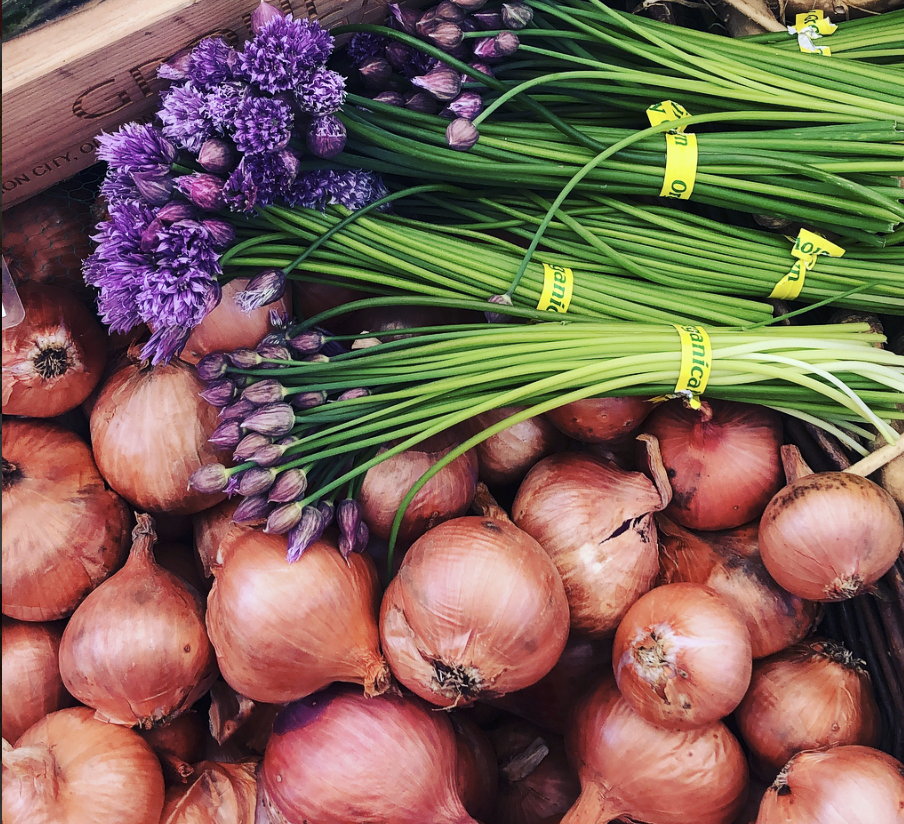 "Health is the outcome of the small choices you make on a daily basis." —Dr. Frank Lipman, author of How to Be Well: The 6 Keys to a Happy and Healthy LifeThe pillars of a healthy life have been enumerated by many an expert, but it was in Frank Lipman's book How to Be Well that delineated and described them in such a way that found me nodding my head in agreement throughout the entire book. The concept of living simply luxuriously adheres beautifully with Lipman's six pillars: what we Eat, the Sleep we get, the Movement we engage in, how we Protect and prevent, finding regular time to Unwind and quality opportunities to Connect all contribute to build a life of good health beyond our physical, but as well including our mental and social lives as well. At the core it is about knowledge and understanding, and just as importantly, it is about understanding the propaganda that swirls around us claiming to offer health hacks, but in reality prevent us from truly living a life of true wellness.What ideas, products and beliefs should we let go of to live well?1. Counting calories ~Love Food, Love Your Body - 10 Simple Tips, episode #8 ~Why Not . . . Learn How to Cook? ~Why Not . . . Treat Your Body Like a Temple?2. Sugar~From altering your hormones so that your body is not registering hunger correctly which then makes you eat more as well as increasing your cravings for sugar, sugar as Lipman calls it is "public enemy number one". With 80,000 processed foods on the market, 58% of them contain added sugar and that includes items you would never have thought to contain such an ingredient (granola, pickles, baked beans, protein bars, etc.).3. Processed FoodsCompared to malware on our computer that jumbles the information in order to confuse, Lipman recognizes that most of us know that processed foods are bad, but we can be bamboozled into eating them never-the-less. When I read Michael Moss' book Salt, Sugar, Fat: How the Food Giants Hooked Us, I was mortified by their antics, but then felt empowered to eat smarter and not fall prey.4. Prioritizing exercise over sleep"Sleep is not a luxury; it is an absolutely esential act of daily mainteance, and it is your ally in keeping your brain sharp and youthful." 5. Remove toxic cleaning productsForget most labels, such as "green", "natural" or "with essential oils" as they often do not adhere to U.S. federal law when it comes to hazardous compounds. As well antibacterial products for hands and household use can contribute to drug-resistant bacteria. In lieu of fabric softeners and dryer sheets, Lipman recommends using a little vinegar in the rinse cycle instead.6. Grooming products with toxic chemicalsCheck out the "Never List" at beautycounter.com to determine which products to look for and to never purchase products which contain them (they also have a downloadable pdf which is pocket-size for easy reference).7. Multi-tasking~4 reasons to stop multi-tasking8. Chasing blissInstead pursue a purpose. While it will take time to figure out what gives your life purpose as you come to better understand yourself, your gifts, the world, etc., choosing to pursue a perpetual state of happiness is a fool's pursuit. ~From Seeking Happiness to Cultivating Contentment: A Shift in Pursuit, episode #162What ideas should we embrace?1. Fat (healthy fat)Fat does the opposite of added sugar; it is something we need in our diet and it gives us stable, longer-lasting energy, controls hunger and helps to regulate our metabolism. Lipman's rule of thumb when it comes to fats: If it comes from nature, it's probably healthy, and if it's made in a factory, be it feedlot or process plant, it's probably not.2. Become a savvy food shopperJust as in life it is important to be a critical thinker about the information we receive, this also encompasses the food we purchase. First and foremost, eat whole foods when possible. When fresh produce, local meats and dairy are available, support your local farmers and ranchers that way you know how your food came to be on your table. Lipman shares, "We have an industrial food supply that has favored profit over health for so long that it's made disease-causing foods mainstream and health-giving foods fringe." Food for thought - pun intended.3. Enjoy brothLipman shares that the collagen in broth is gentle yet nourishing, healing and supportive for overworked and damaged digestive systems as well broth delivers healthy fats, fat-soluble vitamins and minerals to our bodies, counters inflammation and supports the joints and skin, as well it boosts the immune system. A recipe is included in his book for bone broth as well as pairing ideas.4. Salt (just not highly processed table salt)~As an essential micronutrient, it plays an important role in our body helping it to regulate muscle, heart, nervous system and brain function, as well as blood flow and fluid balance. Lipman reassures that so long as you are "eating a clean, whole-food diet and our seasoning your food with salt to taste, your body makes the adjustments to maintain equilibrium". Just make sure to eat unrefined salt, rather than regular table salt (highly processed salt). ~Listen to my conversation with American expat living in France and cookbook author and cooking class instructor Susan Hermann Loomis in episode #192 as she gives some insight into cooking and eating salt.5. Simplify cooking~Why Not . . . Keep It Simple in the Kitchen? ~Discover a Capsule Menu: What it is and how to create your own ~Watch the pilot episode of The Simply Luxurious Kitchen, TSLL's new vodcast. Let go of recipes, use a slow cooker, let the quality of the food bring the flavor.6. Eat the stalksFrom broccoli to cauliflower, even the woody asparagus stalks, these hard-to-digest carbohydrates give good bacteria a feast (the is a good thing). Lipman shares that the prebiotic benefits include ensuring a thriving microbiome. Munch on these chewy options raw or cook them along with the rest of the vegetable.7. Go to bed when you are tiredOur sleep cycles are smart (which is why jet lag is brutal). When we listen to them, we are listening to a wise sleep sage.8. Investigate when your sleep goes awryOften when we are unable to sleep, it is a sign that something in our lives needs to be addressed, adjusted or effectively dealt with so we can move forward.9. Follow a strength training programSince most of us do not work at jobs that require physical exertion, it is important we welcome this healthy stress to onto our physical bodies regularly. Offering protection from disease as well as enabling our bodies to "meet the demands of and carry the loads of life (joints, tends, ligaments, muscles, etc.), strength training can also reduce the risk factors for diabetes, heart disease and cancer. ~Have a look at what I learned when I scheduled time with a personal trainer earlier this year to set up my own strength training routine, episode #201.10. MoveAny opportunity you have to move, seize it. From the exercise routine you follow, to walking to the market, taking the stairs or getting outside on your lunch break to take a stroll, do so. ~To Get and Stay Fit: Keep It Simple, episode #19011. Use a foam rollerLipman recommends using a foam roller five to ten minutes a day to massage the tired muscles and tendons we have kept quite sedentary throughout the day. Also, using a roller helps with circulation and kneading sore muscles which also increases the oxygen flow to the brain. ~Shop foam rollers here.12. Shop at farmers markets when you can~How to make the most of the farmers market no matter where you live ~David Lebovitz Talks About Making Paris His Home, episode #18213. Dry brush your entire bodySimilar to using a roller, dry brushing your body from head to toe improves circulation. Making strokes with your brush that all run to your heart, making this a habit will also improve your body's glow as dead skin cells are also being removed. ~Shop dry body brushes here and here14. Become mindfulBeing mindful is the opposite of choosing to multitask. When we choose to be mindful, we are choosing to be present, to be self-aware, to respond rather than react. While being mindful is not something we can do once and make it a default that we do without thinking, it is something that requires of us to be entirely present thus improving the quality of everything we do throughout our days. ~11 Ways to Live More Mindfully15. Say no to overcommittingOne of the benefits of being mindful is that we are aware of what we are capable of and respond in kind rather than by default. Saying no could be literally saying "no thank you" to invitations or creating "no work zones" in your home. ~Discover how to let go of the busy mentality16. Rest~An Everyday Necessity: Deliberate Rest, episode #13917. Commit random acts of kindnessKindness in our behavior, in our words, in our expression of sincere appreciation. When we choose to commit random acts of kindness, we experience what Lipman calls the "helper's high". Physically our bodies do change as serotonin levels rise and cortisol (released when we are stressed) goes down, as well as our blood pressure.18. Learn something new each weekNot only is it exciting and confidence boosting when we learn something we weren't aware of previously, we are actually helping our brain out as well. By learning new tasks and information, we are creating new neural pathways which "can prevent degenerative diseases like dementia". ~3 part series - The Benefits of Reading19. Celebrate small victoriesPerfection can be the barrier that stands in our way of celebrating along our journey. Lipman states "This anxious pursuit of perfection can be a hindrance to getting and staying healthy because it denies the reality of nature: Health is a dynamic state, constantly changing and in flux, and it is different for each person. There is no 'perfect point' of guaranteed balance, and striving for it can drive you crazy." I wanted to end on this point because even though the book offers how to live well, we are always on the journey toward refining our lives. We will never reach a point of perfect health and be able to stay there. We must be diligent and regularly apply the knowledge we knew which was reaffirmed today, apply the new information we discovered and continue to learn more about our unique bodies, lives and selves. The first step is understanding and once we know how, we can then go about living well so that we can enjoy our lives to the fullest. ~Perfectionist vs. High Achiever: The DifferencePetit Plaisir:Avocado Toast recipe~Discover the many benefits of enjoying an avocado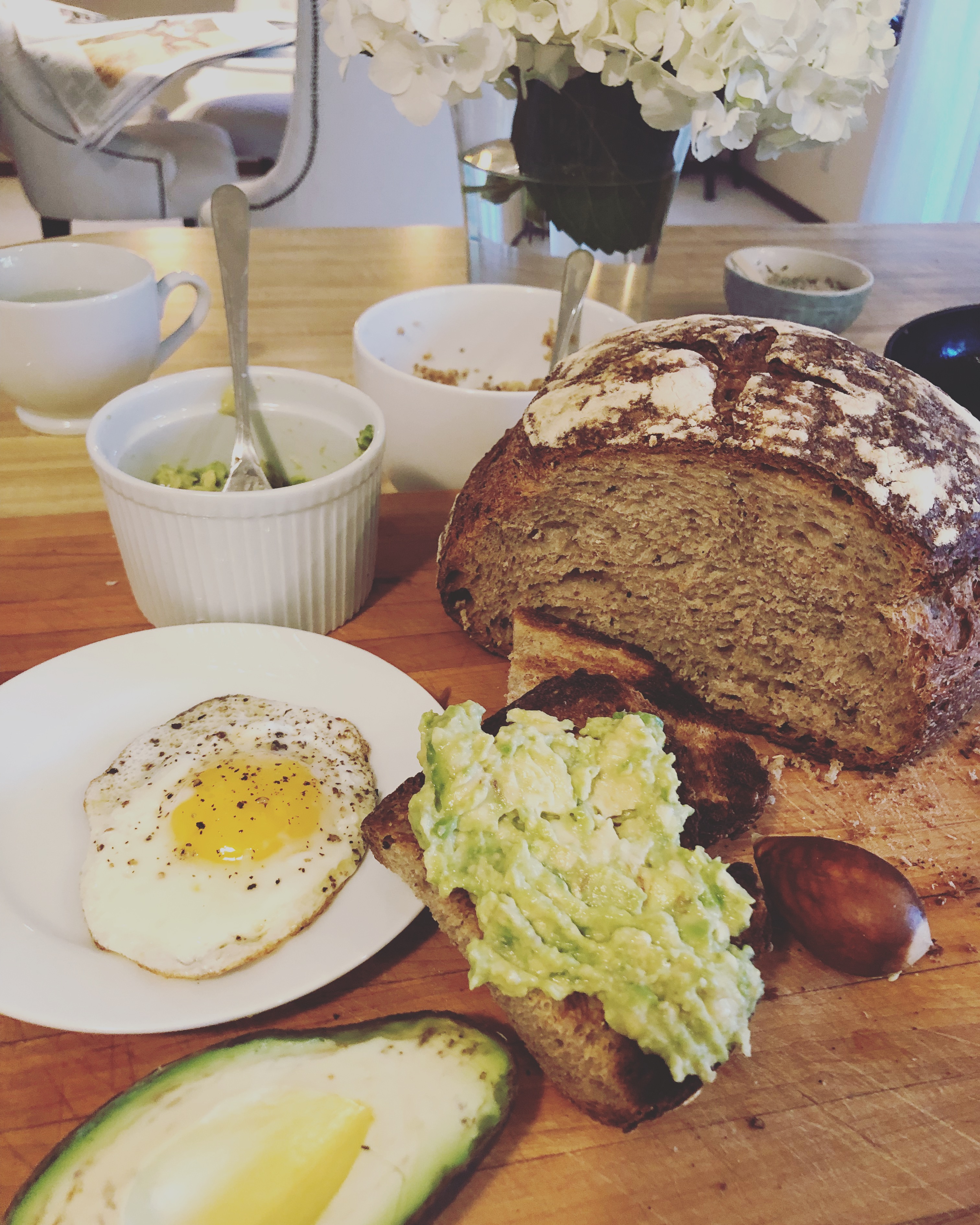 Download the Episode Download the Episode
|
Mon, 7 May 2018
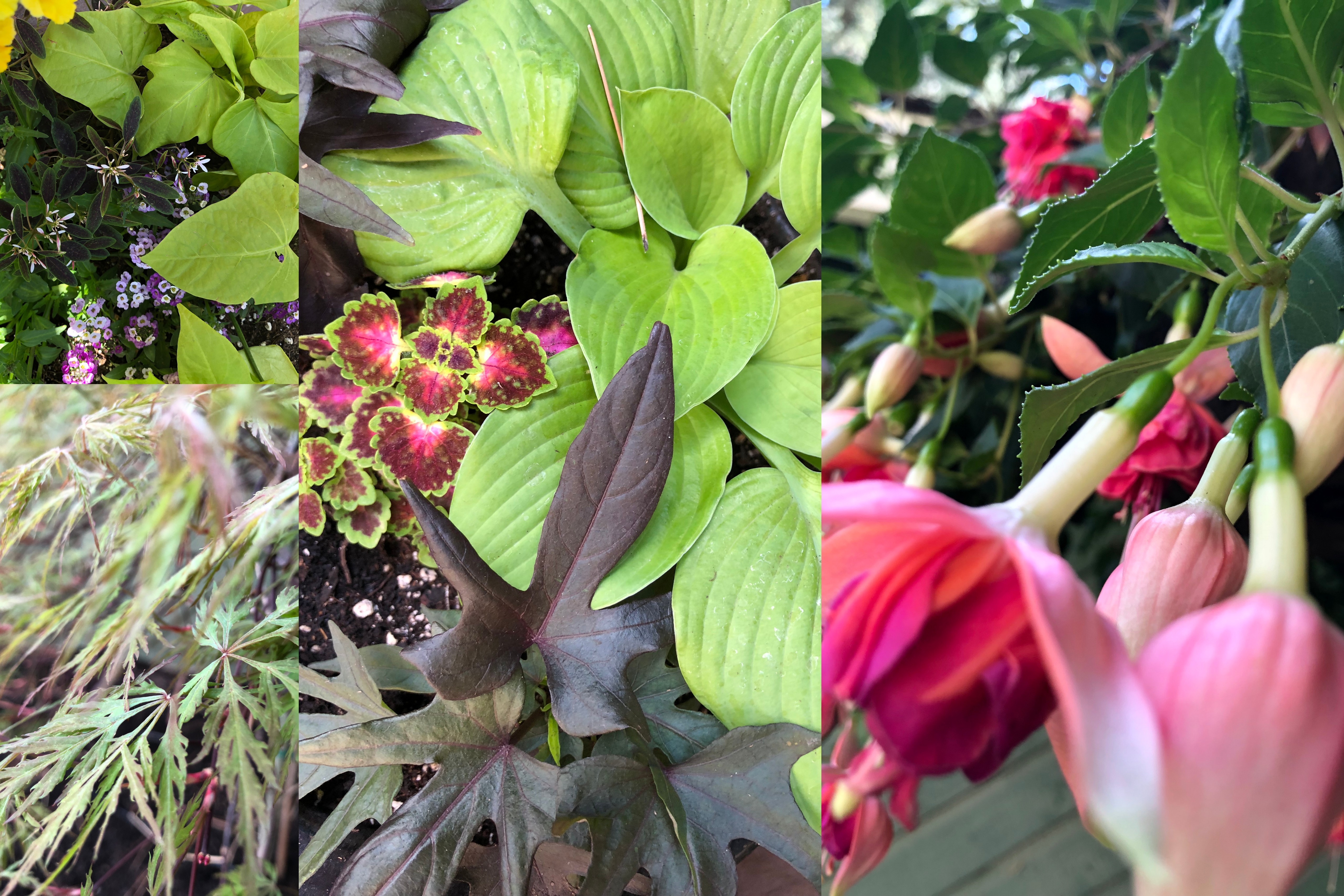
"If you have a garden and a library, you have everything you need." — Marcus Tullius CiceroClaude Monet's gardens at Giverny, Butchart Gardens near Victoria, Canada, or the grounds of Versailles in France. Each and many more outdoor masterpieces which utilize the gifts of Mother Nature to enchant visitors are as glorious as they are intimidating to those of us who are curious to welcome similar beauty onto our own properties and sanctuaries. Having grown up with a mother who has a sincere love for gardening and whose canvas is more than a few acres, I watched as she painstakingly watered by hand all of her flower beds, raised garden boxes for years until automatic sprinklers were put in. During the winter months she still goes through the garden catalogs and plants seeds far in advance of the spring season, nursing them in her sunroom and then in her green house before planting them in their final destination in the yard or garden. Needless to say, the effort master gardeners put into their plants, flowers and landscapes can easily be a full-time job. And while many of us may want and appreciate the gifts that spending time around such natural beauty brings into our lives, we may not all either have the space, property or ability due to renting or the time or devoted passion. I find myself a little in both camps for my reasons for not having a bountiful garden and yard. While in my previous home, of which I owned, I invested much money installing automatic sprinklers, planting new trees, installing a cedar fence, along with the seasonal attention that is required, part of me is quite relieved to not have to rake 40 bags of leaves each year or worry about investing in a landscape architect to mold my yard into an oasis because I am currently renting and do not know the cottage I call home at the moment. However, on the flipside, I derive great pleasure from being outdoors, enjoying the vegetables, herbs and somtimes fruit from my garden as well as arriving home to a bevy of daffodils in the spring, lavender in the summer and lush hostas tucked into the shade in my flower beds surrounding my front porch. Mother Nature is an elixir, a form of comfort and a destination to unwind, relax and appreciate the natural beauty that can surround us should we choose to welcome it into our lives. So today I wanted to share with you how you too can welcome the gifts of a yard and garden into your life without being someone who has the Master Gardener credientials or even wants them. Rather by adopting a few or all of these ideas shared below, you can cultivate the simple, yet powerful gifts a thoughtful approach to tending to your garden and yard can bring. 1. Keep it simpleAs with other areas of our lives, keeping what is necessary and valued and letting go of what is not enables simplicity to be the guiding principle. Even if we are in awe of our neighbor's yard, our space, time and budget may be different. Taking an approach to welcoming more color and fresh plants as well as a gardening space must work for you. So take a look at what your space and time allow (each spring I know I will be planting five pots, looking for one hanging basket and planting my garden which is 4 feet by 8 feet), and enjoy the process of enriching what you have and celebrating, not comparing what you have createed with others. 2. Find your Hardiness ZoneDepending upon where you live, you will have more success with some plants than others. For example, as IG followers know, I am a fan of hydrangeas, but I have never had luck growing them in either of the locations I have attempted due to the zone in which I grow them. While yes, there are often hardier variations available, the classic hydrangeas with the huge mopheads are not something at the moment, I have the opportunity to grow. Therefore, I do not invest in them. If you live in the states, check out this website to determine your hardiness zone based on your zip code, if you live in the United Kingdom, check out this website, and if you live in Canada, check out this website. For all other countries, simply type in "hardiness zone and your country" and you should be able to find a similar website. 3. Shop smart (when and what)Now that you know what types of plants to buy (good news, often the local nurseries will primarily stock what does grow well in your area), keep in mind that shopping early in the nursey season will ensure you have the best selection. As I shared a few weeks ago when my favorite local nursey opened its doors for the first time of the season, I made sure my list of annual plants was ready based on what I needed, and stopped by within the first 48 hours. Now, keep in mind, shopping early is key for those particular items you are going to want that often sell out quickly and are not restocked. For example, Creeping Jenny plants (see here) tend to be hard to find later in the spring as they are quite popular pot drapers. And flowering bulbs such as dahlias, cannas and lilies can be planted in spring as well. But other plants or bulbs will not become available until, for example, late summer and fall such as daffodils as you plant the bulb in the fall so that they will flower in early spring. ~Check out the Ultimate Flower Calendar here for which flowers to shop for and when to plant. 4. Grow an herb gardenNo matter how big or small or even whether you have outdoor space or not, you can always have an herb garden, and I highly recommend that you do. Especially if you are someone who enjoys cooking, you will be saving yourself a decent chunk of change by having, for example, a basil plant (and paying $3-5) than paying $4-5 at the grocery store each time you want fresh basil leaves. In 2013 I wrote a detailed post on how to create your own mini garden, and part of the mini garden details having an herb garden, as well as the herbs to include. If you do plant an herb garden outside, some of your herbs will not need to be replanted each year. Sage, rosemary, flat leaf parsley and even oregano have demonstrated in my own garden to be quite hardy. 5. How to pot a pot: Basics that WorkThere are three components to shopping for the plants to put in your outdoor pots. Whether they will be in the sunshine or in the shade (hanging baskets can follow this prescription as well - although I often buy a basket full of one plant to simplify), include these three components (just three different types of plants - you can buy multiples if your pot is large enough) thriller (for height), filler and spiller Successfully Grow Plants in Containers. Paul Allen Smith is my garden guru and his terminology of what to put in the pots is easy to rememember. Read his detailed post about how to . For example, in my front porch which is in shade for most of the day my basic formula is a hosta for the height (thriller), coleus for the filler, and sweet potato vines for the spiller (they are very delicate, so while I bought them in April, I kept them inside until just a few days ago when the last frost was well behind us). When summer and early fall has past, I plant the hosta (which is a perennial plant) in my flower bed to continue to bring more green, lush filler to the front of my house.
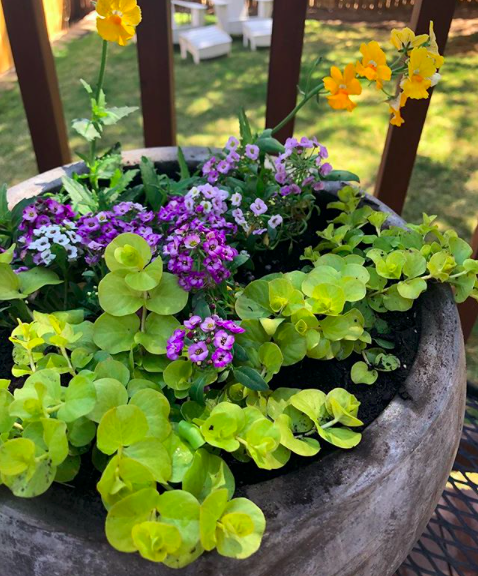 ~This is one of my "sun" pots full of Creeping Jenny in the forefront, the spiller~ 6. Add a few perennials to your yard each yearPerennials can be expensive, but part of the reason their price tag is higher is they last for more than one season. Whether it is a shrub, a hedge, the bulbs for tulips or daffodils, roses, or anything thing you determine would complement your yard and survive in your climate, gradually bring a few more into your yard each year as your budget allows. Take time when making decisions about perennials and watch how the sunlight falls in different areas of your yard to determine exactly what plant or tree would be best. 7. Follow an expert or a few who offers ample inspiration and informationTSLL blog is not a gardening blog as readers know, but I am regularly encouraging time spent with nature as a means for a more content life. If I can do anything to assist you in your journey to welcome more Mother Nature into your home, it is to offer the encouragement to indeed welcome her with open arms. There are many fantastic gardening blogs available to read and follow. Some offer expert advice (as I mentioned Paul Allen Smith above is my trusted go-to), some offer visual inspiration (I love Sharon Santoni's home and yard), and some offer it all along with the ability to purchase the flowers they grow such as Floret's Flowers (her dahlias are her rock-star product, but her daffodils are amazing as well). 8. Water regularlyAs with anything we want to grow, regular watering is a must. Now for those of who travel, this can become difficult as we want to travel during the summer, but we've also invested some money in our plants and we want to return to a home with living, beautiful blooms. Consider carefully placing your pots so that your automated sprinkler will reach them or ask a trusted neighbor to water your pots once or every other day as necessary. 9. Use good soilQuality matters as well when it comes to gardening. This year I purchased a yard of organic soil builder - compost - from our local county recycling business for $15. Now I also had to pay for them to deliver it, but I wanted to give my garden an extra rich, nutritious foundation. You can also buy something similar in bags at your local nursery, but price per pound, this was an amazing deal, and I didn't want to pass it up. "Feeding" your soil and ensuring it is of good quality is the key to building a successful garden. There are other ways you can tend to your soil organically as shared by Better Homes & Gardens - add shredded leaves, animal manures or cover crops. Read more here. 10. Make a plan and map it outWhether it is planning for which plants to put in your pots, how your landscaping will look or the layout in your garden (which vegetables and fruit go where), plan it out first. Better Homes & Gardens offers a Garden Planner which is simple and easy to use, but you can also simply pencil it out on a pad of paper. I find myself over-buying of one plant and not purchasing enough of another, only having to make a second trip (which I don't mind, but it would simplify the process to get what I need in one trip). 11. Visit your local farmers marketWhether you have a garden or not, flowers or not, an outdoor herb garden or not, knowing you can always slip away to your local farmers market to pick up fresh produce, a beautiful seasonal bouquet of flowers for the home and perhaps a potted basil plant for the window sill, is a perfect way to soak in Mother Nature's gifts and welcome them into your home. When we take the time to savor the seasonal bounty having pulled the carrot from the soil, plucked the fresh strawberry from the vine or picked the apples from the tree, we are respecting what Mother Nature has provided and tending to our health and wellbeing along the way.  I hope you have discovered a few tips and ideas for beginning or enhancing your home yard and garden experience. For me, having an outdoor space, no matter how small, has always been soothing and necessary to find the balance of my days. However, initially all of the decisions made available when I stepping into a necessary put me in sensory and selection overload. While I still delight in visiting nurseries, I more clearly trust my decision making and enjoy the experience knowing that when I bring home what I have found, my space will become more welcoming and more of a sanctuary than it already is (all the while saving my budget).
SIMILAR POSTS/EPISODES YOU MIGHT ENJOY: ~Why Not . . . Create a Mini Garden? ~Farmers Markets: How to Make the Most of Your Visit No Matter Where You Live (Bend's Farmers Markets are Shared as well) ~Watch the pilot episode of The Simply Luxurious Kitchen: Seasonal Fare to Elevate the Everyday (season 1 begins on Satuday September 8th) ~ASK SHANNON 2018, Submit your questions now.
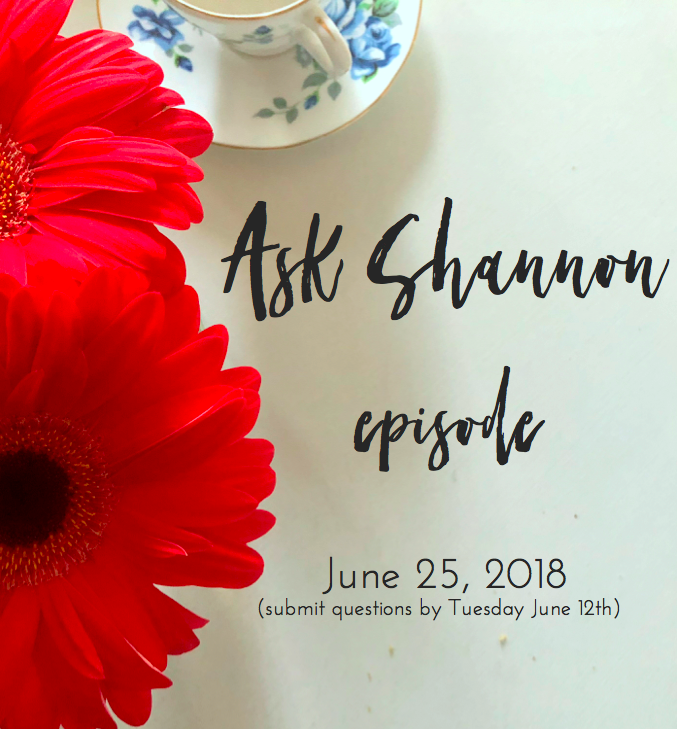
Petit Plaisir:~Ritz and Escoffier: The Hotelier, The Chef and The Rise of the Leisure Class by Luke Barr~other books by Luke Barr - Provence, 1970: M.F.K. Fisher, Julia Child, James Beard and the Reinvention of American Taste 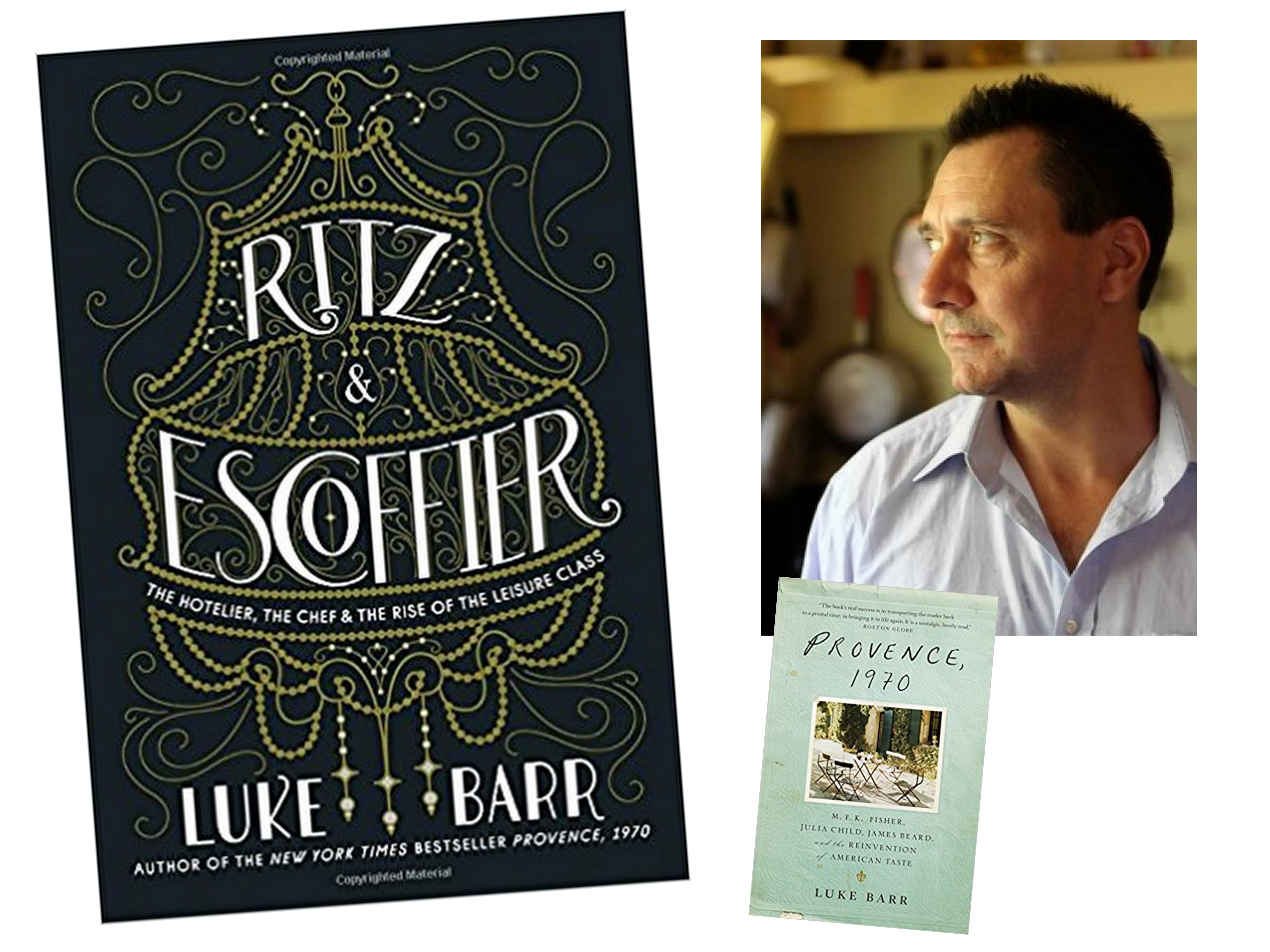 Sponsor of this week’s episode:
Images: (1) from TSLL's home in Bend, Oregon (potted plants, fuchsia, Japanese maple, hostas, coleus and sweet potato vines) (2) pics captured at Bend's first day of the farmers market |
The Simple Sophisticate - Intelligent Living Paired with Signature Style

Categories
lifestylemoney
fashion
general
food
relationships
beauty
holidays
style
decor
etiquette
technology
dating
clothing
news
happiness
health
finances
self-help
feminism
french living
communication
inspiration
self-improvement
cooking
French-inspired
podcast
travel
entertaining
Archives
AprilMarch
February
January
December
November
October
September
August
July
June
May
April
March
February
January
December
November
October
September
August
July
June
May
April
March
February
January
December
November
October
September
August
June
May
April
March
February
January
December
November
October
September
August
July
June
May
April
March
February
January
December
November
October
September
August
July
June
May
March
February
January
December
November
October
September
August
July
June
May
April
March
February
January
December
November
October
September
August
July
June
May
April
March
February
January
December
November
October
September
August
July
June
May
April
March
February
January
December
November
October
September
August
July
June
May
April
March
February
January
December
November
October
September
August
| S | M | T | W | T | F | S |
|---|---|---|---|---|---|---|
| 1 | 2 | 3 | 4 | 5 | ||
| 6 | 7 | 8 | 9 | 10 | 11 | 12 |
| 13 | 14 | 15 | 16 | 17 | 18 | 19 |
| 20 | 21 | 22 | 23 | 24 | 25 | 26 |
| 27 | 28 | 29 | 30 | 31 | ||
Syndication


